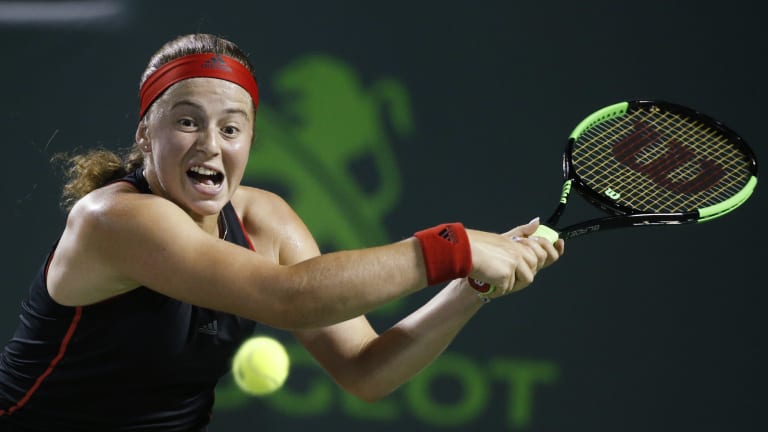Jelena Ostapenko, perhaps more than any other player, knows that a set-and-a-break deficit is hardly insurmountable. It was the same hole the 20-year-old Latvian climbed out of last year, at Roland Garros, to stun Simona Halep and snare an unlikely Grand Slam title.
So when Ostapenko let a glorious chance to take double-break lead slip away, with a rare error, and another Cinderella story stood across the net at a major tournament, you could understand my sense of déjà vu. Would Danielle Collins, a relative unknown at the beginning of March, begin a turnaround that would continue her already improbable run in Miami?
If Ostapenko was thinking what I was thinking, it didn’t show in her response. Serving at 3-2 in a tight and entertaining match, she confidently held—then proceeded to play two of her best games of the match to end Collins’ fairytale story. Just before the stroke of midnight, as it turns out.
“I was working on my mentality more because I need my confidence and to be more consistent,” Ostapenko told Andrew Krasny after her 7-6 (1), 6-3 semifinal win, which puts her opposite Sloane Stephens in the title match. “Because sometimes I was playing, like, one match amazing and the next one not that great.”
Match point:

